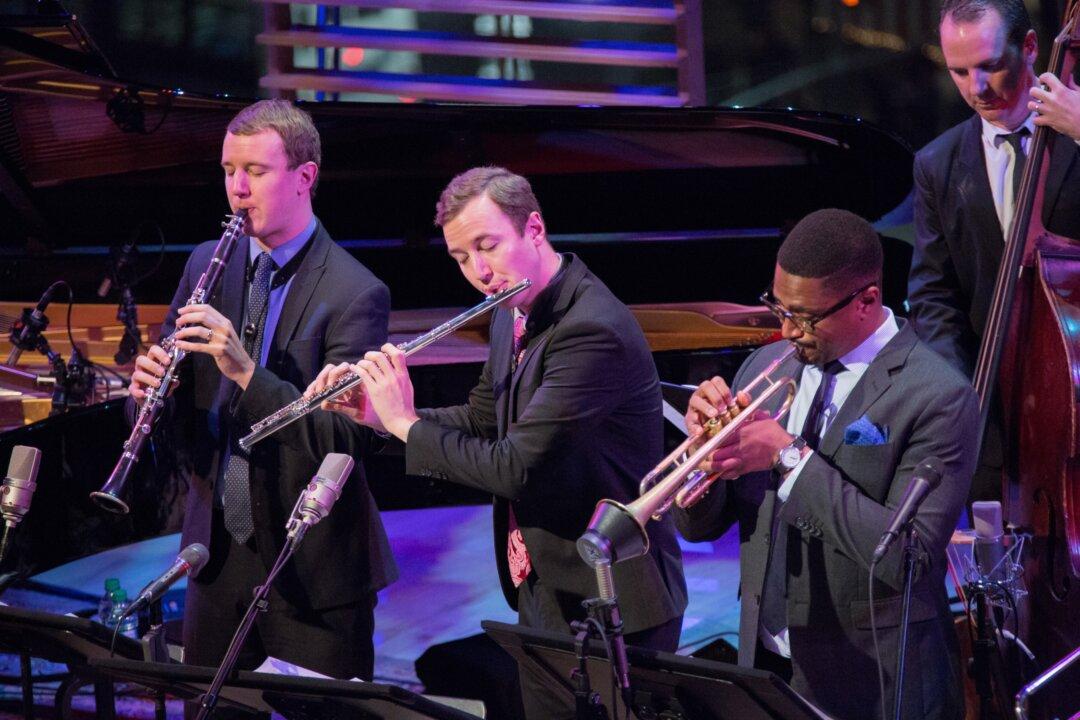NEW YORK—When Jazz at Lincoln Center decided to pay tribute to Tommy and Jimmy Dorsey, Peter and Will Anderson (both of whom play saxophone, clarinet, and flute) seemed like a logical choice of the performers. Though the siblings compose and perform in later styles, the virtuosos have also made a specialty of paying tribute to the music of past masters, such as Benny Goodman and Artie Shaw, and, a few years ago, the Dorseys as well.
For “The Fabulous Dorsey Brothers,” running through Dec. 2, they are joined by an all-star group: the wonderful trombonist and vocalist Wycliffe Gordon; rising star vocalist Brianna Thomas; accomplished trumpeter Bruce Harris; and an outstanding rhythm section of Jeb Patton on piano, Clovis Nicolas on bass, and Aaron Kimmel on drums.






